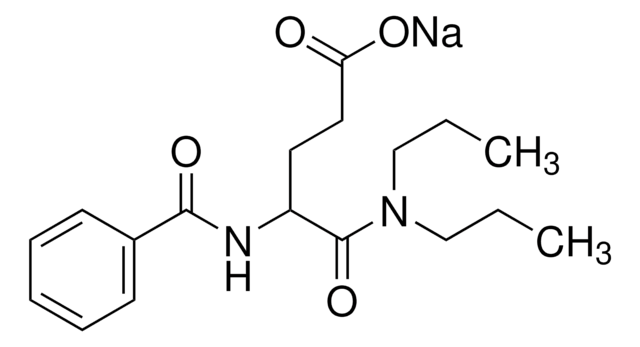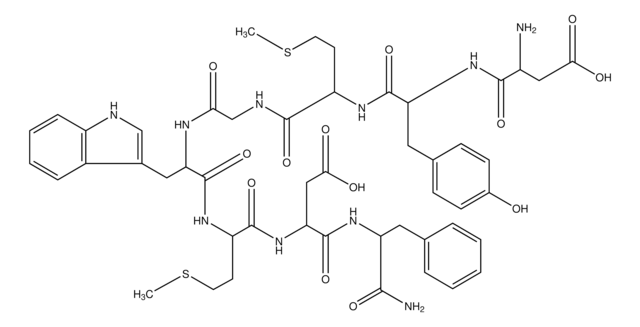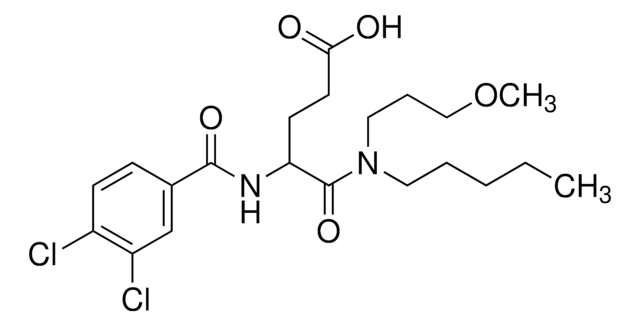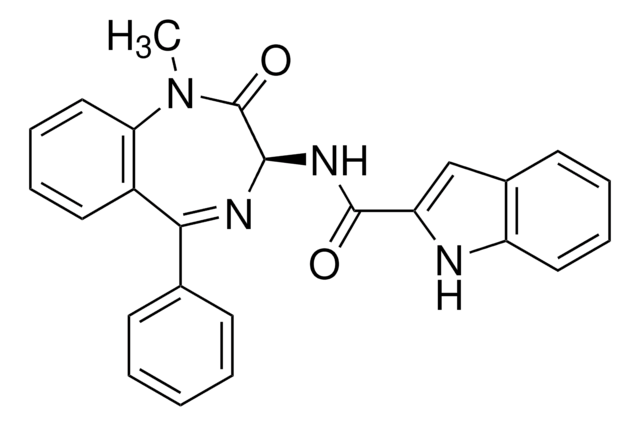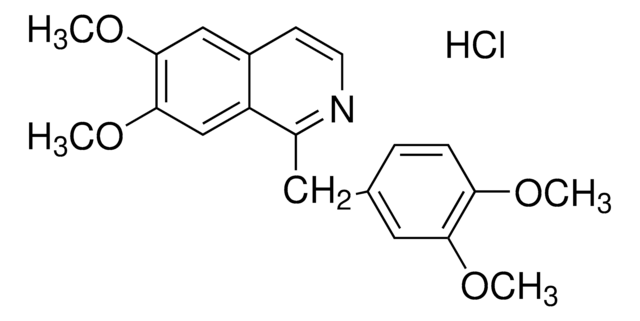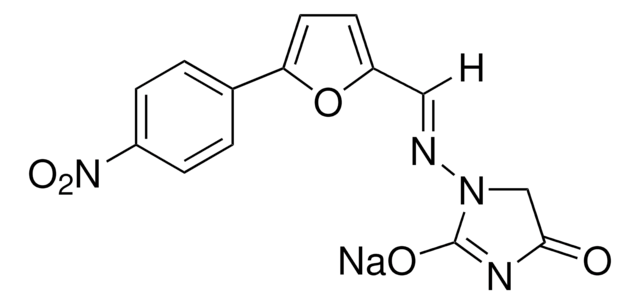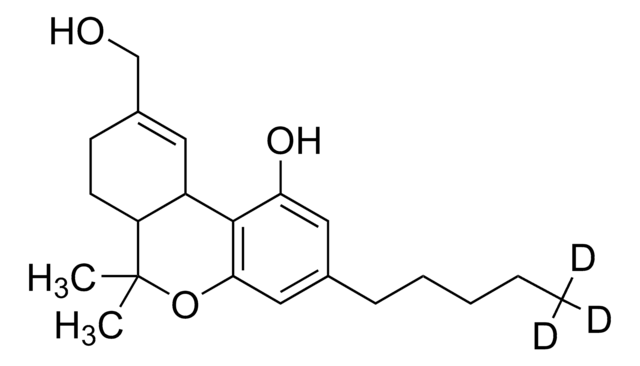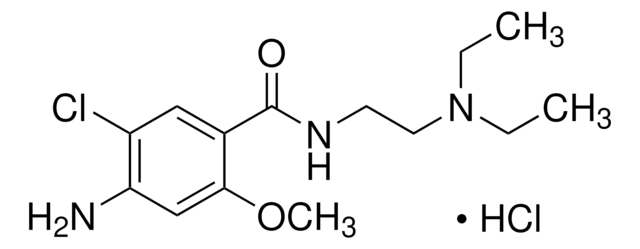L109
Lorglumide sodium salt
solid
Sinônimo(s):
(±)-4-[(3,4-Dichlorobenzoyl)amino]-5-(dipentylamino)-5-oxopentanoic acid sodium salt, CR 1409
About This Item
Produtos recomendados
Formulário
solid
cor
white
solubilidade
45% (w/v) aq 2-hydroxypropyl-β-cyclodextrin: >10 mg/mL
H2O: 10 mg/mL
methanol: 28 mg/mL
cadeia de caracteres SMILES
[Na+].CCCCCN(CCCCC)C(=O)C(CCC([O-])=O)NC(=O)c1ccc(Cl)c(Cl)c1
InChI
1S/C22H32Cl2N2O4.Na/c1-3-5-7-13-26(14-8-6-4-2)22(30)19(11-12-20(27)28)25-21(29)16-9-10-17(23)18(24)15-16;/h9-10,15,19H,3-8,11-14H2,1-2H3,(H,25,29)(H,27,28);/q;+1/p-1
chave InChI
JCNPYMDDOUQTBK-UHFFFAOYSA-M
Informações sobre genes
human ... CCKAR(886)
Aplicação
Ações bioquímicas/fisiológicas
Código de classe de armazenamento
11 - Combustible Solids
Classe de risco de água (WGK)
WGK 2
Ponto de fulgor (°F)
Not applicable
Ponto de fulgor (°C)
Not applicable
Equipamento de proteção individual
Eyeshields, Gloves, type N95 (US)
Escolha uma das versões mais recentes:
Já possui este produto?
Encontre a documentação dos produtos que você adquiriu recentemente na biblioteca de documentos.
Nossa equipe de cientistas tem experiência em todas as áreas de pesquisa, incluindo Life Sciences, ciência de materiais, síntese química, cromatografia, química analítica e muitas outras.
Entre em contato com a assistência técnica![(Tyr[SO3H]27)Cholecystokinin fragment 26-33 Amide ≥97% (HPLC), powder](/deepweb/assets/sigmaaldrich/product/structures/125/021/32eb71ec-73e5-4cfc-94d0-ebcf5e784e39/640/32eb71ec-73e5-4cfc-94d0-ebcf5e784e39.png)
